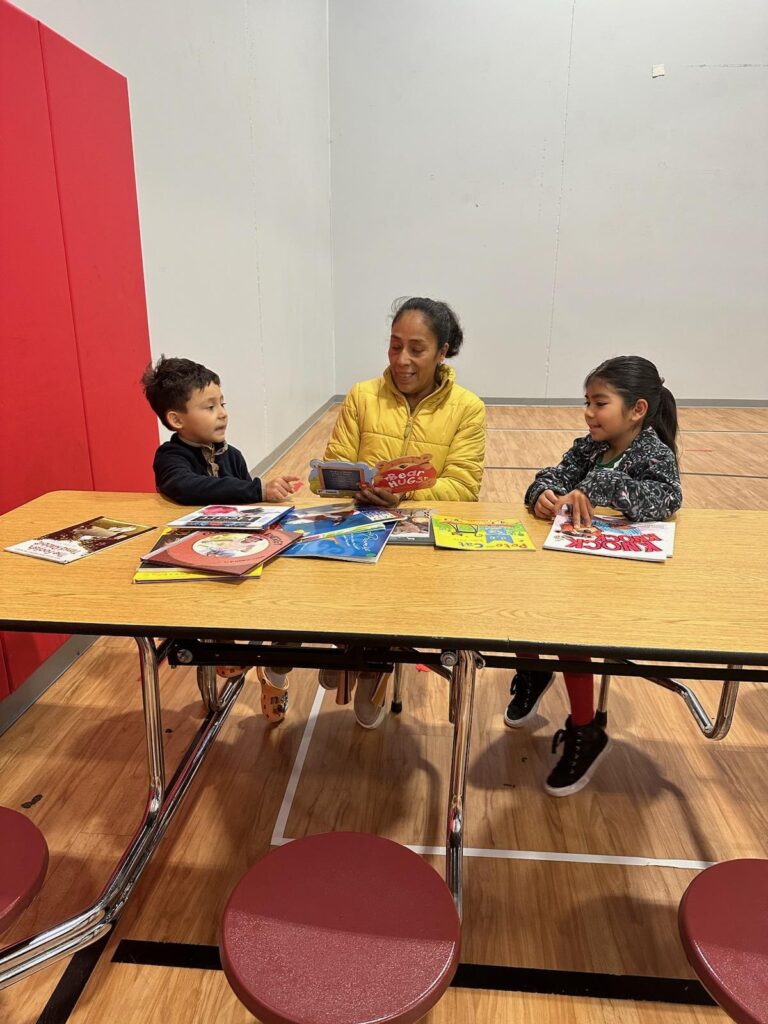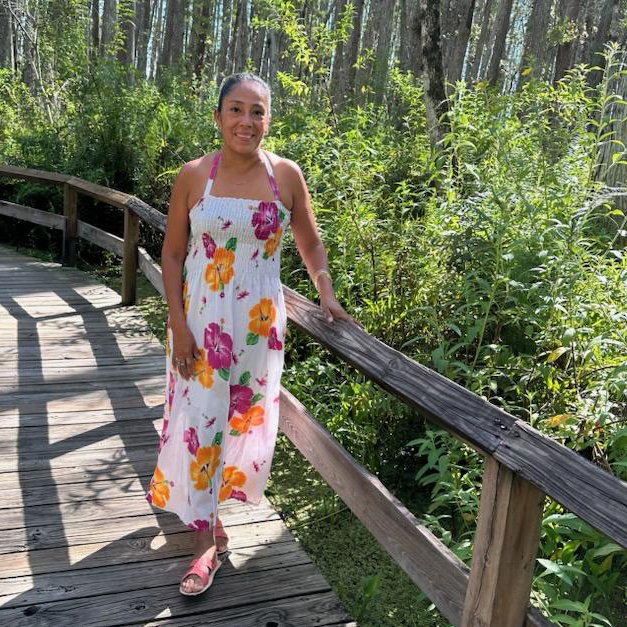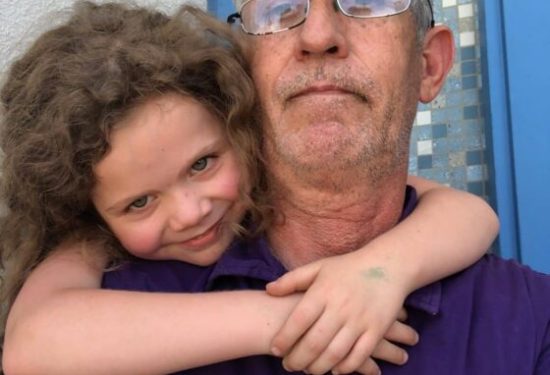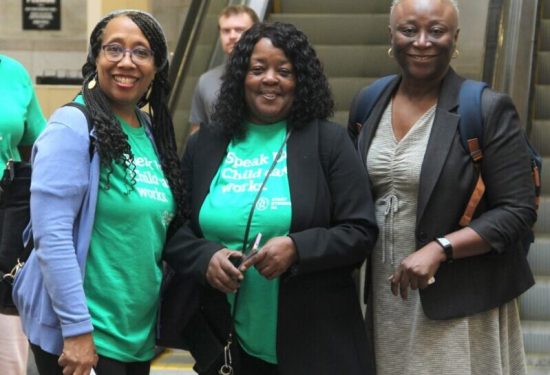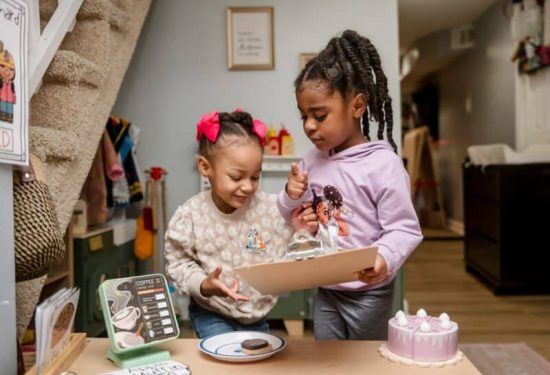My name is Faviola Martínez de Estrada, born in Veracruz, Mexico. When I was young I didn’t like kids and didn’t want to have children at all. Today, I have six children and one grandson, and I am the vice principal and cofounder of the La Red Latina de Educación Temprana MN, based in Minnesota. This is the story of how I found my calling in child care and training Hispanic mothers and fathers in the state of Minnesota.
Although I was born in Veracruz, I was raised in Puebla, and I like to say that I am more poblana than jarocha. The first children I had to take care of were my siblings, because I was the oldest one, and my mother had to go to the hospital quite often due to health issues. So, at 8 years old, even though I didn’t like it, I was in charge of the house. That was my first experience with small kids. Then, when I was 14, my mother sent me to dressmaking classes, but I snuck out to go to folk dance classes, which I liked much more. I was so good that they offered me an unpaid job as an aerobics instructor. The unexpected consequence of this volunteer work was that I began to get a taste for working with children. This feeling later transformed in a very rational shift with the birth of my youngest sister, when I was 17. The age difference made me feel like she was my daughter.
In Mexico, I finished high school with a technical degree in nursing, and a few years later I moved to the United States with my husband. We were in Washington state for a while, but then we moved to Minnesota in 2001, and everything changed there because the community only spoke English. I only knew a few words of English, and in Washington I hadn’t needed it, it was almost like being in my country, but in Minnesota, although some spoke Spanish, they didn’t want to practice it. Everything was in English. I remember one time when my daughter was yelled at in a store, and I had no way to stand up for her because I didn’t understand what they were saying. I went home almost in tears, feeling very frustrated. Furthermore, I was undocumented, and that closed many doors for me. But as an immigrant, I have never known how to give up, and learning has always been my motivation.
At church I met Ruth Evangelista, who approached me one day and asked if I knew about the afterschool programs and resources that the church had for children. I had three children at the time, and was pregnant. So, I took the kids there and there were lots of activities, even CPR classes, and hockey lessons, which are so pricey anywhere else. At that time I was no longer working, because paying for a nanny was so expensive that my husband had told me “everything you earn is going to go to the nanny, you should stay at home taking care of the children.” My sisters-in-law, who did have to go to work, also began to leave their children with me, and soon word spread in the neighborhood, and other parents began to call me. At church, Ruth referred me to an English tutoring program, and I slowly began to learn the language. It was a process of many years that involved different schools, waiting lists, and a lot of effort and dedication. I also took certifications, such as the CDA (Child Development Associate) course and the nursing assistant program, but despite passing the exams, they would not give me the certificates because I was undocumented.
I became more and more involved with church activities, working with Ruth as a volunteer, learning more about the courses and training required for child care. I also learned about the difficulties that many Hispanic mothers and fathers face in caring for their children while working, and about the challenges of people who care for children at home, something that I had faced myself. Ruth had the idea of organizing a summer program to care for children from 9 in the morning to 3 in the afternoon, and we started it together at church. It was a great experience in which we did sports, played soccer, went to the movies, sang, and did folk dances, the same Mexican dances that I had learned so many years ago in Puebla. The program ran for two summers and was a success, but it could not continue due to logistical problems.
That’s when Ruth and I decided that it was time to start our own child care project. The project did not yet have a name, but it was going to focus on educating and training people who worked in home-based child care. Ruth spoke to another colleague, who secured a small grant that made the first training possible. We had 13 moms in that session. Today, we have approximately 300 women and men who attend classes at the La Red Latina de Educación Temprana MN, better known as La Red. We provide child care, lunch, a certified trainer from Develop Minnesota, courses in their own language that cover all the aspects of home-based child care, which are also recognized by state authorities. We are expanding and want to continue growing, and that is why we partner with national organizations like Home Grown.
After fixing my immigration situation, I managed to obtain my MNLEND certification in neurodevelopmental disabilities at the University of Minnesota, and subsequently I have taken many other courses. I have been a child care provider for more than 30 years. I think it’s like a gift, I seem to turn into a kid when I’m working with children, I start jumping around with them, I have fun, time goes by faster. I love doing that, although in my current position I work with the moms who come to La Red, all of them Latinas.
We share our culture, our language, our love for our children, and most importantly, our knowledge and experience so that the women and men who take our classes can care for children in the best possible way. I feel very proud of being Latina and of what we have achieved with La Red.
Author:
Faviola Martínez de Estrada is originally from Veracruz, Mexico. She is a wife and devoted mother to six children and grandmother to one. Faviola id the co-founder of La Red Latina de Educación Temprana MN, an organization based in Minnesota that supports family, friend and neighbor caregivers through advocacy assistance and child development classes.
